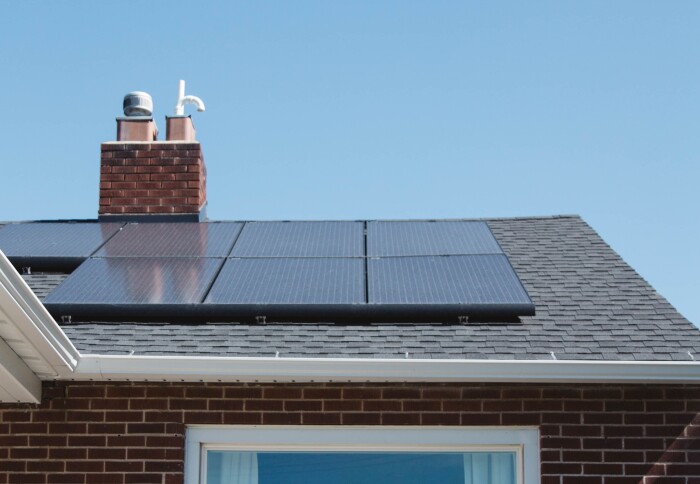Novel heat storage proposal could help decarbonise heating and cooling systems

A new paper by researchers in Mechanical Engineering proposes an innovative zero-carbon system for heating and cooling buildings.
A team of researchers from Imperial College London has developed a novel system that can store solar energy in the form of latent heat and use it to provide heating and cooling for buildings. The system uses phase change materials (PCMs) that can absorb and release large amounts of thermal energy during their solid-liquid phase transition.
The published study, titled "Decarbonising building heating and cooling: Designing a novel, inter-seasonal latent heat storage system", provides a detailed analysis of the design, performance and feasibility of the system. It also presents a case study of a semi-detached house in London, UK, that could benefit from the system.
The study highlights the importance of decarbonising heating and cooling for buildings, which account for 23% of the total CO2 emissions in the UK. The current strategy proposed by the UK government is to replace natural gas boilers with heat pumps, which are electric devices that transfer heat from the environment to the building.
However, this would increase the electricity consumption and the pressure on the electricity grid, which would require more renewable and sustainable sources of electricity. The proposed system offers an alternative solution that can operate almost independently of the grid, by using solar energy as the main source of thermal energy.
The system consists of solar thermal collectors that convert solar radiation into heat, and PCM storage modules that store the heat in the form of latent heat. The system can provide both space and water heating for the building, as well as cooling by reversing the heat flow.
The capital, maintenance and running cost of the system is expected to be somewhere between the cost of installing a ground source and an air source heat pump. The researchers estimate that their system can reach cost parity with air source heat pumps within 4 years of installation, based on the payback period analysis. After reaching cost parity, the cost of the proposed system follows a decreasing trend with a projected full payback to customers within 30 years of installation.
The study shows that the system can achieve significant reductions in CO2 emissions (about 2000kg per annum compared to gas boilers and 1000kg per annum compared to air source heat pumps for the London test case), energy consumption and costs compared to conventional heating and cooling systems. The study suggests that the system can be a viable option for decarbonising heating and cooling in buildings, including regions that have a humid temperate oceanic climate, such as the UK.
This work and interactive hands-on demonstrations of PCMs will be presented alongside other energy research projects at the Future Energy Festival on Thursday 16th November 2023 under the title “A Cool Way to Keep Warm: Phase Change Materials”.
The lead author of the study is PhD student Jada-Tiana Carnie, one of seven students selected for the PhD cohort 4 of the Transition to Net Zero Pollution Initiative programme led by Mary Ryan, and aligned with the NERC-funded Science and Solutions for a Changing Planet DTP run by the Grantham Institute. Jada is an alumnus of The Energy Futures Lab MSc in Sustainable Energy Futures.
Dr Antonis Sergis, co-author of the paper, said: “Even though this is a conceptualised solution based on energetic modelling, we think it is important as it offers diversification of the methods to be used in delivering heating and cooling to buildings for a renewable future, which are currently scarce.”
Article text (excluding photos or graphics) © Imperial College London.
Photos and graphics subject to third party copyright used with permission or © Imperial College London.
Reporter
Press Office
Communications and Public Affairs
- Email: press.office@imperial.ac.uk
